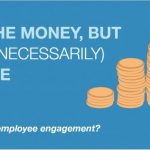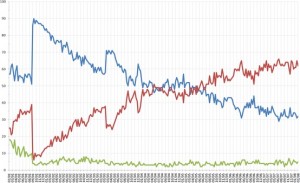 A fundamental component of research is exploring how people think and what tools and processes we use when we form decisions. Over the last few years this field of exploration has increased considerably. This increase in knowledge has been a benefit for the research profession, but is also a benefit for anyone wanting to have a deeper understanding of what is really going on when a person makes a decision. Books such as Predictably Irrational and The Invisible Gorilla help to elucidate the hidden processes that take place for all of us.
A fundamental component of research is exploring how people think and what tools and processes we use when we form decisions. Over the last few years this field of exploration has increased considerably. This increase in knowledge has been a benefit for the research profession, but is also a benefit for anyone wanting to have a deeper understanding of what is really going on when a person makes a decision. Books such as Predictably Irrational and The Invisible Gorilla help to elucidate the hidden processes that take place for all of us.
This week I was again reminded of this field of study when I read an article on the Return Trip Effect. Most people have experienced this phenomena. You are taking a trip someplace, maybe you are leaving on vacation. The trip to get to your destination seems to take forever while the return trip seems to take less time…even though, both trips probably took about the same amount of time. Many people assume this feeling is because a person is more familiar with the landscape on the return trip and therefore can better anticipate the return trip time. As it turns out, this is not the real cause.
In reality, the perceived time difference is a result of people’s anticipation of the destination to which they are traveling. This anticipation influences their perceptions of the initial outbound trip time making it feel longer. When people are returning home, their anticipation is much more sedate and as a result they are better able to predict their actual travel time. As a result, the return trip doesn’t feel as long as the outbound trip.
To contrast this effect, consider your daily commute to and from work. If this is part of your normal routine then you likely have reasonable expectations about both the outgoing and returning trips. As a result, both legs of the journey seem to take about the same amount of time.
The article in USA Today does a pretty good job of summarizing the report. This finding is important not just to help us have better vacations but because of the underlying implications of these findings. We know that people are capable of accurately providing their opinions about a topic. However, those opinions are subject to change and those opinions are influenced by underlying factors that are not as obvious. By having a more full understanding of the components that impact a decision we are better able to understand behavior. And most importantly we know that the only way to change behavior is to fully understand what causes a behavior.






